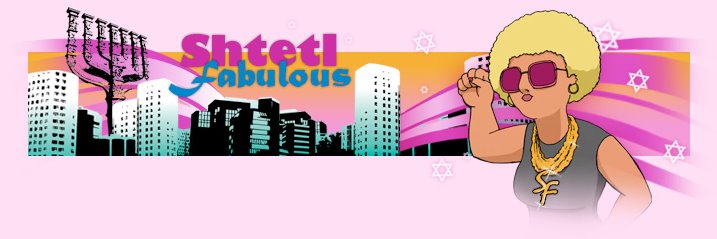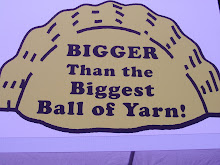I happened to be killing time in New York City yesterday (aforementioned flight delays), so I decided to get a manicure. Whilst soaking my digits, I noticed the girl sitting next to me had a small tattoo written in Hebrew letters on her foot. My Hebrew reading skills are pretty decent, but I was having a little trouble making it out.
It seemed like perhaps a letter was missing from the end. For all you Hebrew readers out there, the tattoo read "Chaf, Lamed, Het, Yud Yud." In my mind, she was either trying to say "every life" and forgot a Mem Sofit OR she randomly added a Yud. Either way, I figured it merited a question.
Casually, I asked her what her tattoo meant and she confirmed her intention was for it to read "all life," or "every life." No clue what profound intention was bundled up in her foible, but I decided not to press the matter further. Instead, I decided to turn her incredibly stupid decision and apparent failure in Hebrew school into a blog post because that is more fun for everybody! (Except her and a buddy from college who also had a botched Hebrew verb on his neck a la Britney Spears.)
My Google search on "misspelled tattoos" revealed that this is hardly uncharted blogger territory. One guy had a whole photo gallery of evidence that it doesn't take a PhD in English to become a tattoo artist. And though Snopes.com confirmed that the urban legend of Andy Sakai who emblazoned wannabe college students with Japanese symbols for "small penis" instead of "warrior," was truly a myth, my mani-pedi-mate can hardly be the only idiot.
UCLA's Language Department devoted an article to the items that get lost in translation on someone's body. From Kanji symbols for "English" instead of tranquility and Chinese characters spelling "supermarket" instead of a loved one's name, the possibilities for fuck ups are endless.
And the frustration/humiliation over misspelled tattoos is foreign languages is apparently not limited to the eye of the beholder. Artists also despise them as demonstrated in this pretty hilarous post, and they figure the human canvas is responsible for the research and verification of authenticity. Determining poseur status remains on a case-by-case basis.
To all my readers with foreign words and characters permanently inked onto their bodies, I would really love your feedback on the whole issue. How did you verify your tattoo? Do you speak the language? If not, how did you know it was "kosher?" Why a foreign language and not English?
To everyone else, please feel free to share your needle-and-ink-driven tales!
Monday, March 30, 2009
Subscribe to:
Post Comments (Atom)


6 comments:
I'd read that tattoo as "Kol Chayai" = All my life.
I second Raggedy Mom - that was my first thought when I spelled it out.
I'm always amused by Hebrew tattoos, since Jews aren't supposed to get them in the first place.
My friend's ex-stripper/wife had a Chinese symbol tattooed above her left breast. When my husband Brynn asked her what it meant, she said "Eternity, but I want to get it removed." The irony of that statement was completely lost on her.
One great loophole for getting kosher tattoos in Hebrew is by not being Jewish in the first place. My sister, who is Episcopalian, decided her next tattoo should be in Hebrew. She directed my daughter, who was 13 at the time and all fired up with bat mitzvah prep, to spell and print-out a copy of the word for "rose." I was sick with worry that a 13 year-old might not find the right word or spell it correctly, but she did. They chose Shoshana instead of Vered, just because it sounded prettier. Still, it was with trepidation that I asked my sister to hike her top so I could see the result. Whew.
Where but on SF can you find the phrase "Still, it was with trepidation that I asked my sister to hike her top ..." ?
Post a Comment